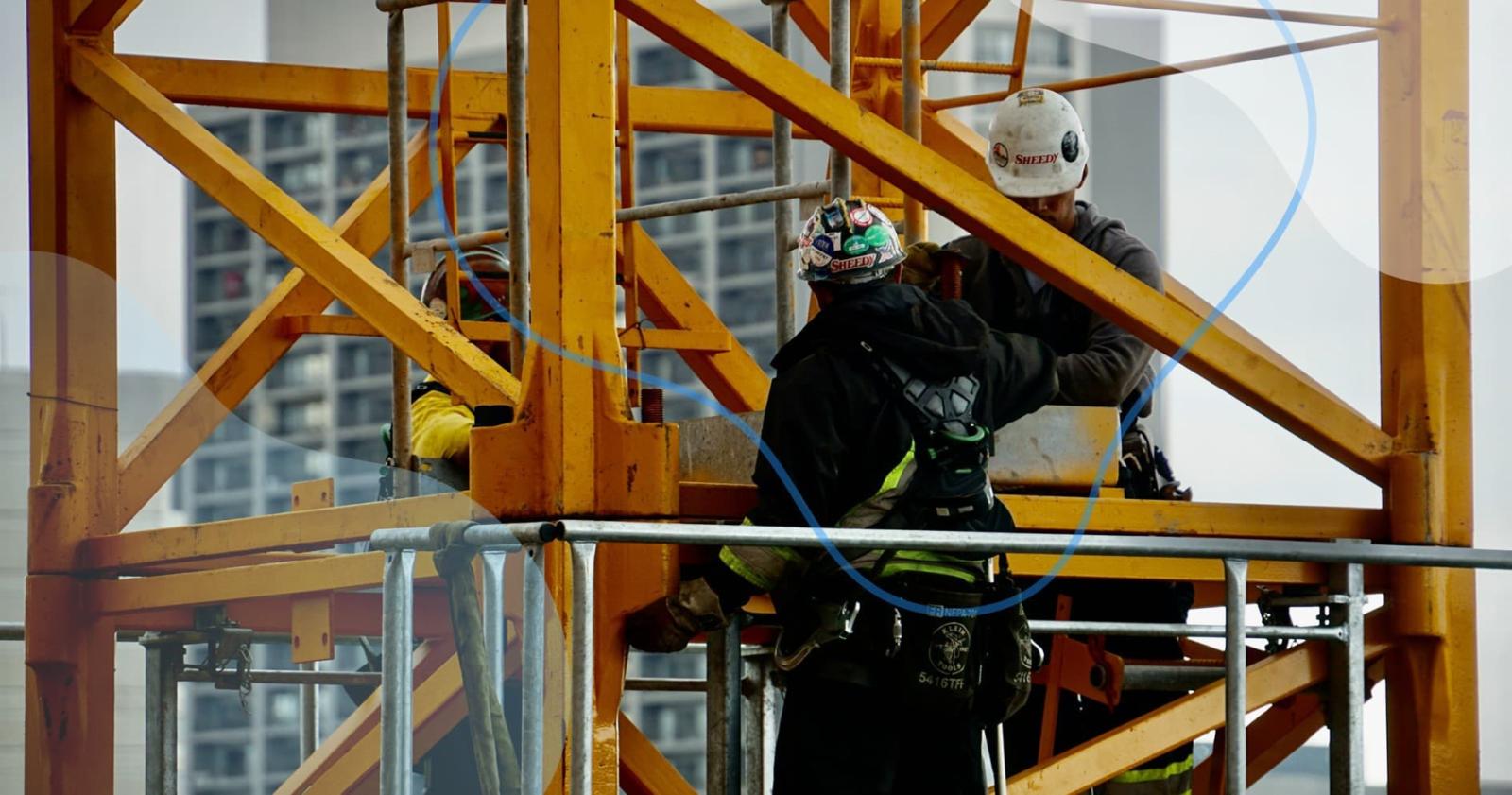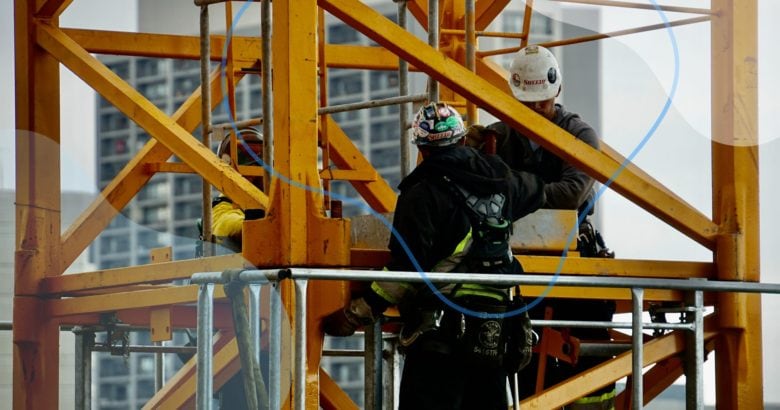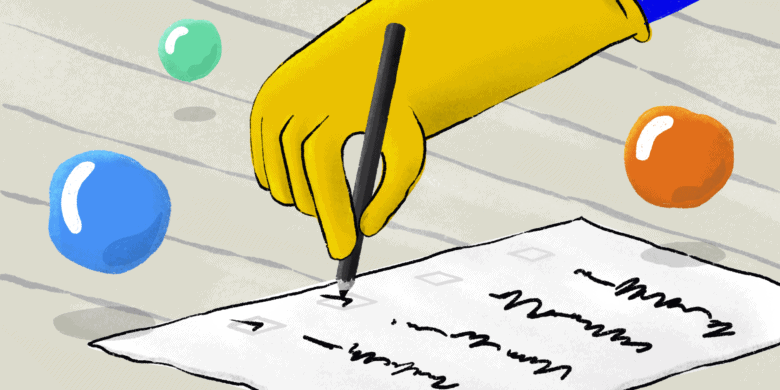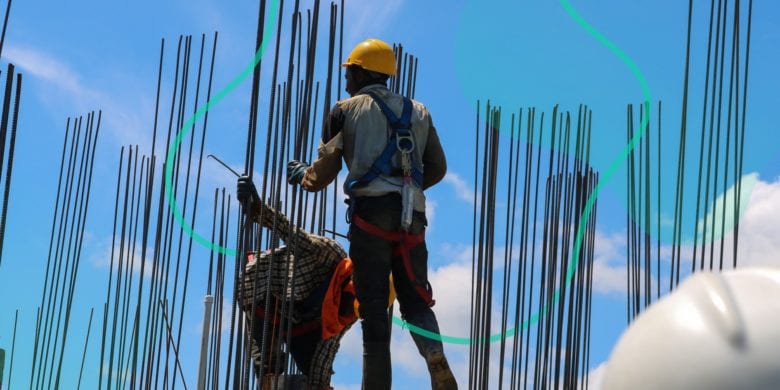Construction managers can be found managing a variety of projects from kitchen remodels to bridge construction. There’s so much to think about when managing a construction site — deadlines, weather, availability of substrates, ordering materials, managing the on-site staff — just to name a few.
If management isn’t developing the proper skills, it may lead to some unhappy team members and a subpar final product.
“I had to stay late for free to redo a few things the boys did during the day,” said Martin Ouellette, CEO at Imagine Woodwork. “I learned to work at being patient with the crew, not to stress, and also reconsider the crew size for the project. If it’s too big, there’s more to manage.”
While being a “perfect” manager isn’t achievable, there are a few specific skills a project manager should work on to improve operations.
For this article, we’ve interviewed experienced construction project managers to get these 11 most important construction project management skills.
Boost your team’s efficiency with Hubstaff's productivity tools
Try it free for 14 days11 top construction project management skills

Skill #1: Proper organization
Since a construction project manager is constantly multitasking, maintaining excellent organization is crucial to ensure everything runs smoothly.
Jeff Neil is a project manager for a Capital Coating, a commercial roofing contractor. As they explained it, “There are so many people, schedules, and material involved that it’s crucial that you stay organized with your scope of work, manpower, schedule, and material.”
Staying on top of the project by being organized helps the entire project flow concurrently. Bad organization can lead to a ripple effect. If one trade gets out of schedule, everyone’s schedules are pushed back, causing delays at the construction site.
Havoc doesn’t have to happen. There are plenty of tricks you can use to stay organized.
Jeff notes the company’s favorite organizational tools are:
- A detailed schedule, which is always on hand.
- The snooze button in his email app, which allows important emails to show up at a specific time.
- A calendar to schedule important meetings and dates that are coordinated with other trades.
These are just some simple tools that help manage your construction projects perfectly every time.
However, there’s a wide range of technology available to construction project managers. Let’s look at even more.
Skill #2: Excellent time management

Jesse Silkoff from MyRoofingPal mentions, “In my discussions with the roofing companies I work with, one of the most important skills of a good construction manager is the ability to manage their time and the time of their team.”
Slow work can lead to overtime, missed deadlines, and worst of all, unhappy clients. Time management in construction is important because there are so many steps and job sites to keep track of.
One of the hardest things to manage on a construction site is unproductive employees. In a recent survey, 53% construction business owners and managers said they spend 11 hours each week traveling between job sites to check on their crews.
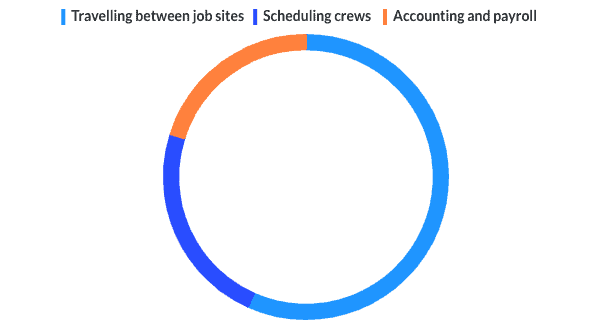
It’s no fun being the person who has to micromanage everyone’s time. You aren’t always around to keep everyone on track, either. GPS time tracking apps can save you from that.
Hubstaff’s time tracking software for construction crews offers the ability to clock in and out automatically using geofences, track employees via GPS, and get detailed timesheets for the entire team.
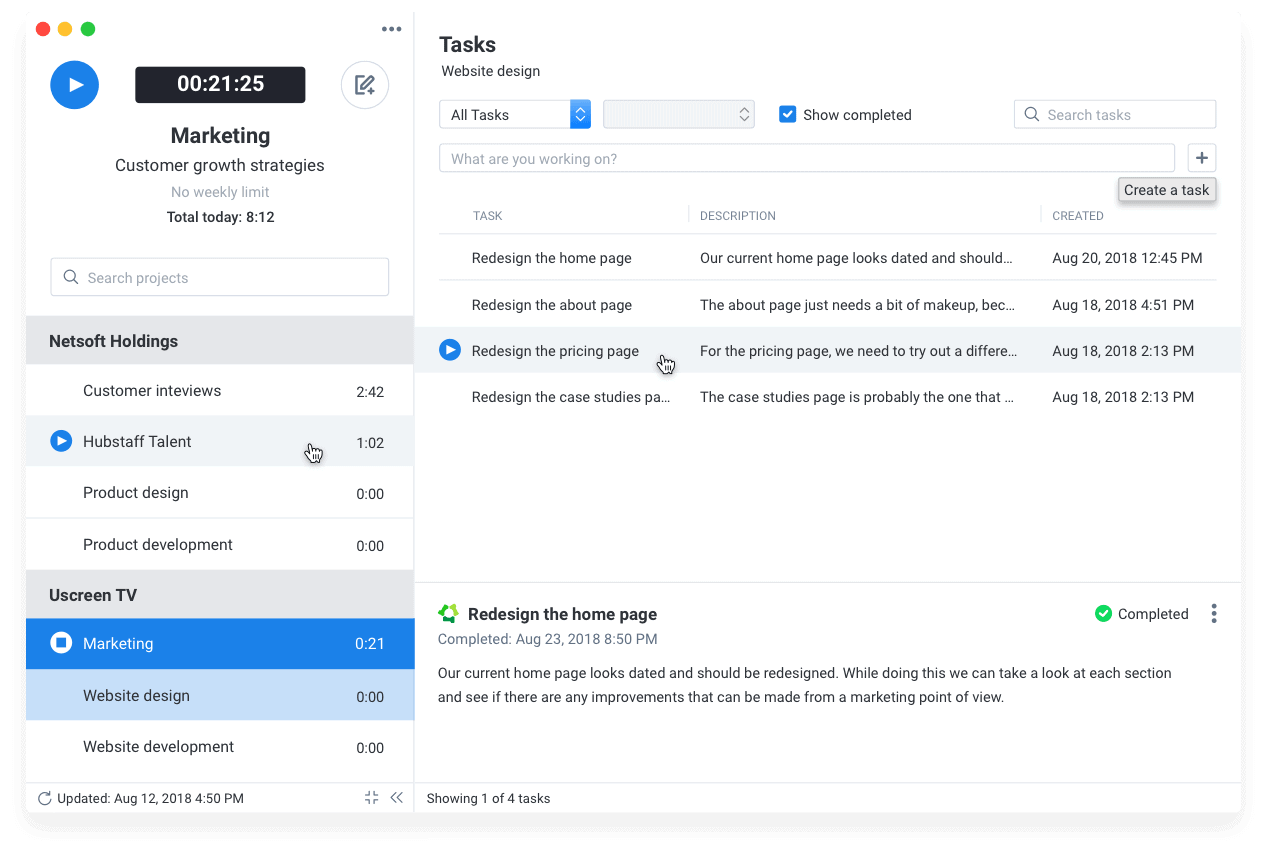
You can assign tasks to each member of your crew, schedule shifts, and get alerts when they start late or leave early. At the end of the day, detailed timesheets are emailed straight to your inbox so you don’t have to spend any time tracking down time cards.
Time tracking software allows construction project managers to stop second-guessing work hours and spend more time on bigger priority tasks.
Skill #3: Prioritizing and knowing when to delegate
Knowing how to prioritize work affects the success of your project, the engagement of your team, and the role you play as a leader. All projects, especially large complicated projects, need clear priorities.
Accurately prioritizing work is one of the biggest challenges for project managers. Even if you have the best project management software on the market, it’s still you who needs to enter the tasks. Priorities change on a daily basis and being a good leader ensures nobody is working on yesterday’s priorities.
Here are some tips to organizing your priorities:
- Create a huge list of all your tasks. Jot down the tasks for the entire project before breaking them down into daily or weekly tasks. Seeing the tasks on paper will help you get a better idea on what to prioritize.
- Identify urgent vs. non-urgent. Check for tasks that need immediate attention. Immediate attention is work that if not completed by today or the next, will have some serious consequences.
- Assess the value of tasks. Look at important work and determine what carries the highest value to your construction business.
- Prioritize tasks by estimated effort. Do two tasks have the same priority level? Consider how much time/effort each will take. Prioritize the one that will take the most effort to complete.
After you’ve made a prioritization plan, it’s time to delegate tasks.
Leonard Ang from CMO at iProperty Management and MyRoofingPal says “A team is only as good as their leader because that person’s guidance is what will determine whether the project will finish on time or not.”
Managers should be able to delegate tasks to the right team members while prioritizing what needs to get done first. This ensures a smooth workflow from start to finish and everyone is working a good amount of hours without hitting overtime.
Leonard also notes, “Construction managers should be able to guide their team, not only be telling them what to do but showing them, creating a strong bond through leadership by example.”
Before delegating work, you need to make sure people know what they’re doing and how to do it first. If not, team members may spend more time twiddling their thumbs and trying to understand the task more than working. Even worse, they could do the task wrong, which could set you back.
As a good construction manager, you could ask everyone if they are clear on the task before sending them off. If they are new or have never done it before, show them how you do it and they’ll work much more efficiently.
With experience, prioritizing and delegating work will become much easier. You may even get to a point where you consistently finish projects early, leaving more time to the small details.
Skill #4: Pinpointing the best recruitment strategy
All great teams are made of great individuals. You don’t want just anyone working for your construction company. You want the best. In order to attract the best, you need to make your company stand out from the competition.
Finding and retaining construction crew members isn’t an easy task. In fact, 45% of companies identified this as one of their biggest challenges.
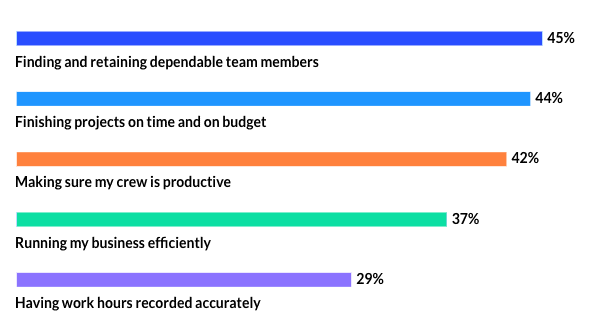
However, offering incentives and perks to attract new staff works. Glassdoor notes that 57% of job seekers count perks and incentives among their top considerations before accepting a new job.
Here are some perks and incentives that apply to the construction industry:
- 401(k)
- Paid cell phone
- Paid holidays and vacations
- Life insurance and disability coverage
- Casual dress and atmosphere
- Company vehicle
- Paid sick leave
Jane Flanagan, Lead Project Engineer at Tacuna Systems has their own list of perks and incentives. “Perks such as free checkups from an onsite doctor, gift cards, car wash, etc separate from basic salaries would go a long way in motivating workers.”
Recognizing that perks and incentives are important will facilitate hiring team members and give you a return on your investments in the long run. You’ll have a lower staff-turnover, therefore, spend less money on hiring resources.
Subscribe to the Hubstaff blog for more posts like this
Skill #5: Ability to recognize and reward achievements
One of the greatest skills you can have as a construction project manager is to empathize with others. Recognizing and rewarding when your team reaches a milestone establishes a bond, creates a merry workplace, and increases the team’s productivity for the next project.
Jane Flanagan, Lead Project Engineer at Tacuna Systems speaks again on a topic similar to the point above: “Set clear realistic goals, challenge workers, recognize and reward achievements, and recognize positive behaviors.”
To be able to celebrate when a goal is met, it’s important to set achievable goals.
Here’s an example of an achievable monthly goal for a team of seven people:
Frame the house and install drywall in one week.
Here is an example of an unachievable goal:
Finish the entire house with Ritz Carlton-quality.
Setting unachievable goals only causes stress and disappointment. Set your team up for success by thinking of realistic goals. This doesn’t mean the goals should be too easy, in any case. It’s good to challenge your team, so you can grow your construction company the right way.
When employees reach the set goals, allow a little bit of celebration, tell them how happy you are, and even offer performance-based rewards. This doesn’t only reflect well on the culture, but on you as a manager, as well. Recognizing and rewarding achievements is a crucial step in retaining the strong individuals that your team is made of.
Skill #6: Commiting to employee safety and well-being

“Safety can’t be compromised to save cost. Managers and employees must follow the Department of Labor (DOL) guidelines.” said Ouellette.
The construction industry is known to be one of the most dangerous fields to work in. From trembling heights to heavy-duty tools, there’s a lot of room for accidents to occur.
Non-fatal injuries cost construction companies millions of dollars per year. While money isn’t the biggest worry here, it can tank your business.
The solution? Clarify and enforce the guidelines. A good construction project manager will see accidents before they occur and provide proper training, safety equipment, and references for the team to follow.
“For starters, construction managers should implement a safety meeting at the start of every day. These meetings should ensure that everyone has an understanding of the work that needs to be performed and how to do it safely. Even though they might be common and repeated messages, they’re necessities,” said Alex Berezowski, Owner/General Manager of The Foundation Experts Inc.
Skill #7: On-point communication with the construction team
“In whatever you do or in whatever field you are in, if you have good communication skills, you can go a long way,” – Chris S. Roja, the president at Gallery Company, Inc. “As the CEO of my construction and remodeling company, I do everything I think is necessary to connect with my employees. I believe understanding what they need is one way to get their loyalty and will to perform their duties.”
Having solid communication with your employees ensures the job duties are clear. One task done wrong due to a lack of communication can be costly in both time and money.
Try having a meeting at the beginning of every workday. 15 minutes is plenty, depending on the topics you want to cover. In this meeting, go over the duties and make sure staff know exactly what they are doing. A pep talk is also a great way to spread good energy.
Lastly, remember that project management tools are an effective way to get everyone on the same page while working remotely.
Skill #8: Being able to acknowledge the power of technology
Knowing what technology is available and how to automate work with different software is an important skill for managers to have.
You can’t do it all.
Shane at Review Home Warranties lists a skill construction managers must have: “He or she is willing to adapt to the latest industry-specific technology. There have been some pretty great advancements in cloud-based field service management software within the past decade. These sorts of tools are essential for a manager who oversees multiple remote worksites as well as deploying teams and equipment to each.”
When you need to move work off of your plate or open up capacity for your crew, being open to digital tools can help everyone focus on what matters most.
Cloud-based project management software has come a long way in recent years. These higher-level tools are essential for a construction manager to oversee multiple job sites.
Hubstaff Tasks is a project management tool that helps managers visualize tasks and timelines. This Agile project management app allows you to organize projects and keep work moving forward.
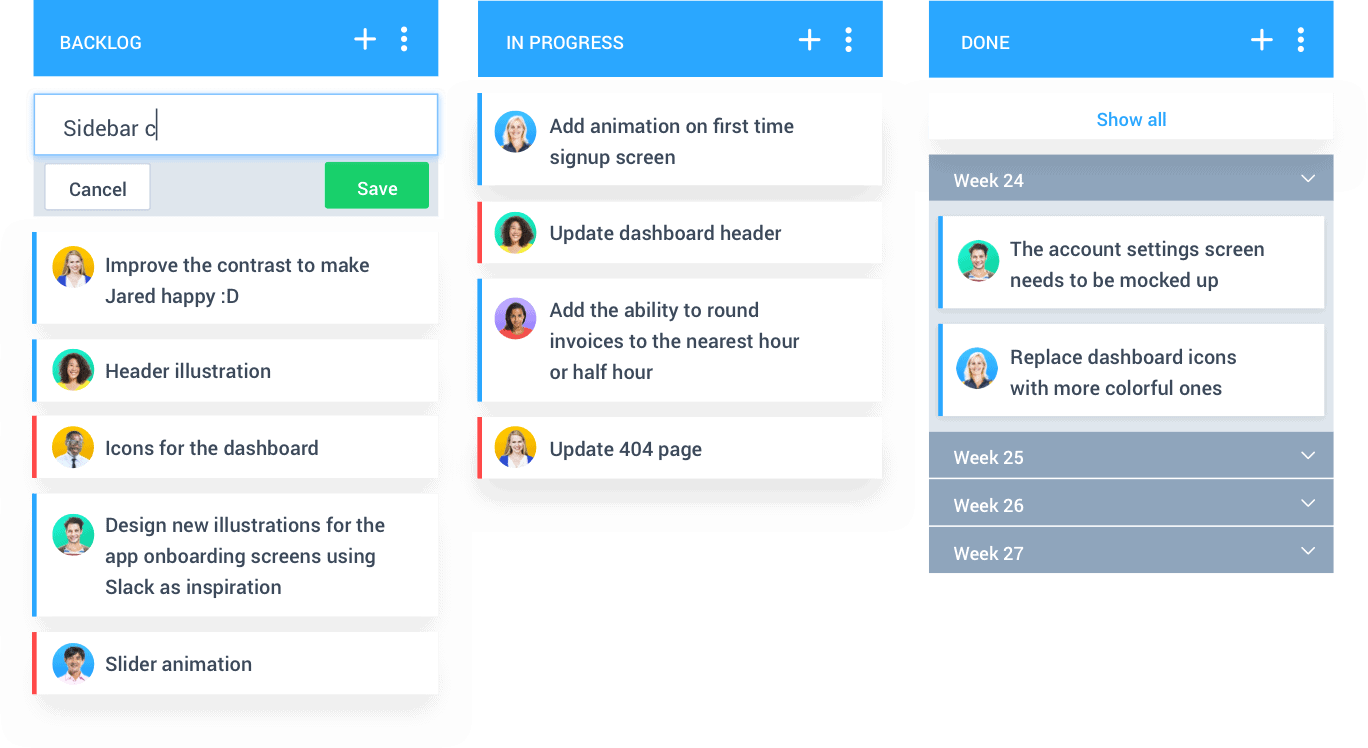
Just enter the tasks that are in progress, and fill in details such as who is assigned, a project description, due dates, attachments, and more.
Tasks that are assigned to your team will show up in the Hubstaff time tracker if you integrate the two tools. By doing so, you’ll have a better idea of how long tasks take to complete and what the project costs are.
These tools help tremendously with organization and making sure the right work is getting done on time.
Skill #9: Being open to feedback
Being open to feedback is one of the most important characteristics you, as a construction manager, can have. Help your team help you by letting them voice their opinions.
Another skill listed from Shane at Review Home Warries is being open to feedback. “Construction projects are complicated from start to end, having to deal with clients, suppliers, workers, and more. This is why construction project managers need to have a habit of communicating with people. To be able to guide them on what needs to be done and slowly build progress to finish the project while at the same time being open to feedback about the project. They must always be open to learning new ways of doing things that may end up being more beneficial to their overall success in the long run.”
Shane’s message really sticks. It’s true, being open to feedback doesn’t only help yourself be a better manager, but helps the entire operation move forward in a positive way as well.
How can you show your team that you’re open to feedback?
Tell them.
During your morning meetings, ask if they have anything to add. You can also hand out manager evaluation sheets once per month. These forms can even be anonymous. The point is, sometimes you can get thoughts on paper better than you can face-to-face.
Remember not to take feedback so seriously. You are receiving feedback in the first place so that you can better yourself and your construction management skills.
Skill #10: Excellent client communication skills
Customer service and customer communication go hand-in-hand.
When you communicate with your customers often to ensure you’re on track and meeting expectations, you provide good customer service.
And good customer service plays a vital role in construction management.
Goodberlet Home Services agrees communication and customer service are top priority. “Clarity and transparency with clients are absolutely vital for construction project management. Attentive, prompt, and transparent project managers allow no room for confusion when communicating with clients.”
Before starting the project, make sure to know the following information:
- The client’s budget
- An estimate of the project cost
- A timeline in which the project should be completed
- The fine details and specifics
You can also send customers updates throughout the project in the form of pictures and videos. Ask them for feedback and if they’d like anything to be changed or added.
Excellent customer service can score outstanding Google and Facebook reviews.
Reviews act as social proof. It gives reassurance to prospects that your company will get the job done. Don’t be afraid to ask customers for reviews once the job is finished and the customer is satisfied.
Skill #11: Being able to problem-solve on your feet
“The ability to be able to make decisions and problem-solve on your feet is a skill that can live within all good construction managers,” explained Brandy Andrews, founder at National Air Warehouse.
Andrews has over 10 years of experience in the HVAC industry, and has gained some valuable insights.
Andrews noted that during any project, you are bound to encounter new issues, and there’s not usually time to mull over your options.
This forces you to come up with a solution that can affect many people (and lots of money) in a matter of just a few minutes. You will then need to stand by the decision you make.
If you can’t make a decision when needed, people will wait on you, project success will suffer, and deadlines will be missed. This is not acceptable.
The best construction managers are problem solvers who can act on their feet quickly.
What Andrews says is true.
Things can always go sideways on the job site and you can’t be a good construction project manager if you take forever to solve problems, or if you consistently make the wrong choice.
Which skill will you tackle first?
No new construction manager shows up on the first day of the job with all the necessary skills for construction management.
Only with time and practice can these skills be developed.
Don’t worry, the tools mentioned above can be implemented right away to help you develop a few of these skills faster. A good project management software and Hubstaff’s GPS time tracking tool are some examples.
These tools will give you the time to focus on what really matters — which are all listed above for your consideration.
Most popular
How to Calculate a Raise: Practical Guide for Employers
By 2030, the US alone will lose $430 billion annually due to low talent retention — and a lot of this turnover stems from low pa...
How to Survive and Thrive in an 80-Hour Work Week
It’s hard to believe that only a century ago, the 80-hour work week was the norm in the United States. Then, in 1926, the Ford M...
Mastering Workforce Scheduling: Techniques and Tools for Success
Imagine a workday where scheduling your workforce effectively ensures that every shift is perfectly aligned with your business nee...
Top Time Trackers for Virtual Assistants: Enhance Efficiency and Accountability
Virtual assistants (VAs) have a lot of responsibilities — and so do the people who hire them. With so much to keep track of, a t...
